Guest Post: The Art of Inquiry
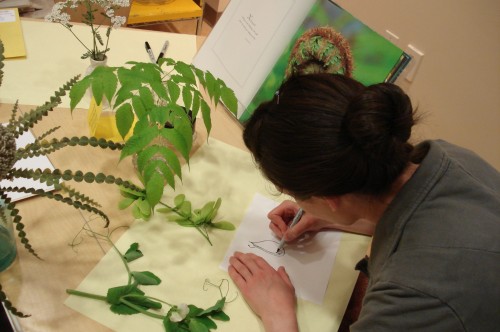
This post is written by Louise Cadwell and Yvonne Liu-Constant, who co-led this year’s Lesley University study tour at Opal School. It is cross-posted on the Cadwell Collaborative blog.
From February 17 to 21, Louise Cadwell and Yvonne Liu-Constant, Assistant Professor of Early Childhood Education at Lesley University, led a study tour with eleven participants to Opal School of the Portland Children’s Museum. This is the first year for Louise and the Opal School staff to collaborate with Lesley University in Cambridge, MA after two years of offering this experience for graduate credit through Butler University. This year, the participants came not only from all over the country (OR, CA, MA, VT), but also from as far away as Beijing, China.
We were mostly early childhood educators, but with diverse experiences ranging from college and graduate students, to teachers and directors, working in public as well as private settings. The group dynamics were simply amazing–we all connected in the short week that we had together, bringing deep thoughts and provocative questions from our observations of Opal classrooms to each discussion. During our last discussion on Friday, Louise described the week as “transformative,” and all heads nodded.
How does a week like this transform us?
Carlina Rinaldi, President of Reggio Children and Director of the Loris Malaguzzi International Center in Reggio Emilia, Italy tells us that…to learn is to love and to learn is to change. Carlina Rinaldi also reminds us that our emotions are engaged in deep learning and that the most powerful learning is a social experience. The kind of learning that Carlina speaks of is the kind of learning that we witnessed all week long among children and adults at Opal School. In turn, our group of Lesley students were changed by what we observed. None of us will ever be the same again.
This blog post will focus on one aspect of what we observed that changed us…The Power of Questions.
Our first day at the Opal School was a holiday, so we had the opportunity to take a close look at the environment while the children were not there. The presence of meaningful questions posted around the rooms caught our eye. The questions served as invitations for children to explore the materials and the provocations invited them to think deeply. For example, in this photo, the teachers of Opal 3 invited children to explore with wire (“What can wire do?”) while provoking a deeper inquiry about balance (“How might wire help us explore balance?” “How might wire help us express balance?”)
The questions also demonstrated how social learning is seen as critical and integrated into all learning. For example, this question found on the art materials shelf in Opal 2, where every item is in its place, asks “What does it feel like to belong?”
Questions surrounded us in written form, but also in every classroom between a teacher and one child, or in a class meeting…in math class, in literacy studio, in P.E. class. What could have been statements informing and instructing students, became engaging, collaborative and thoughtful exchanges that required thinking and creativity on everyone’s part.
Our participants frequently shared questions that they heard while observing in classrooms. These questions have inspired us to change our teaching. During group reflections, we shared:
“As a teacher, I should be posing questions, and seeing how questions can make me a better listener.”
“I’d like to create a culture of inquiry around me, and I hope that becomes more of a habit in my personal and professional life, so even when I’m talking with friends, before giving advice, I’d stop and ask: how can I make it into a question?”
“What I’m seeing here at Opal is that asking question is the pivotal act in teaching. It turns teaching from preaching into inquiry.”
“The only way we can learn from each other about asking questions is to move to a more reflective space, which allows us to be more vulnerable with each other.”
“The questions that are posed here are open questions that invite reflective thinking rather than one correct answer.”
“The way that questions are used here is very natural, seamless with the flow of conversation.”
“Teachers at Opal are well practiced and well versed in the art of questioning…they are on the same page.”
“It seems that reflective practice is a cornerstone of teaching and learning for everyone of all ages at Opal.”
One of the books that has deepened both the understanding and practice of the language used in teaching at Opal is Opening Minds: Using Language to Change Lives, by Peter Johnston. This book is a must read for all of us. It demonstrates how the language that we use in classrooms can support not only students’ intellectual development but also their sense of self and their social, emotional and moral development.
For those of you who would love the opportunity to visit Opal School, we highly recommend any of their professional development initiatives. Their yearly summer symposium is a wonderful way to experience the school and hear teachers’ excellent presentations about their work. Go here to register for the June Symposium.
Thank you for the gift of sharing your reflections, Louise and Yvonne! It was a real pleasure having the group here – and we look forward Louise’s return at the Summer Symposium!

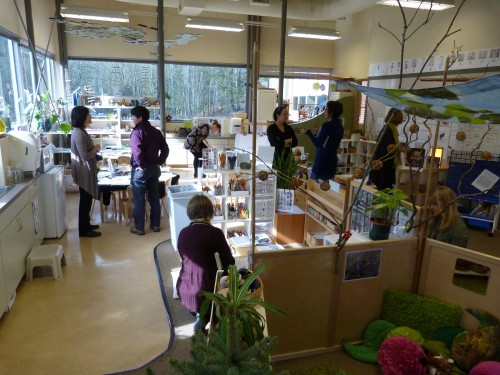
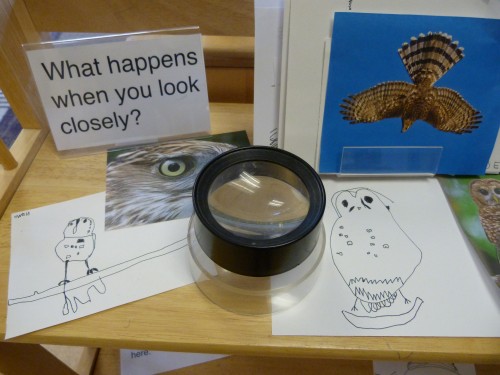
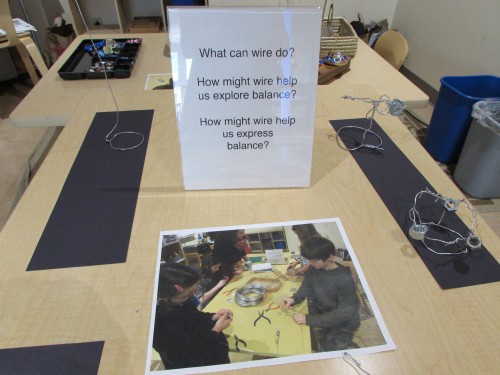
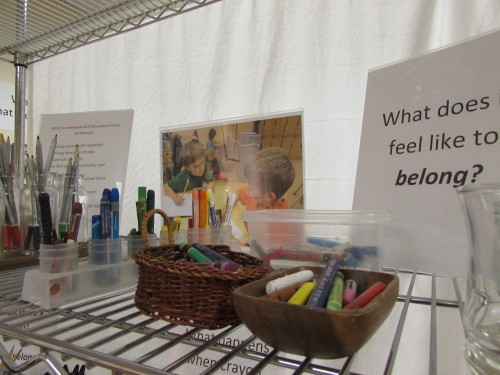
As a participating member of this study tour, I came away filled filled with compelling impressions and inspiration. Among these are:
-The way in which provocative questions framed the vision and life of the school.
-The respectful, curious and intentional way that teachers spoke with the children.
-The way that the teachers work together – in passion and collaboration
-The way that stories are woven into daily life and play is valued as a fertile land for creative connections and literacy-building.
-The way that the assumptions and principles of the school come alive everywhere in daily life.
– The way that children are invited to explore big ideas from infinite perspectives.
Inspiration from your school has stayed with me and will continue to do so. I celebrate and thank you!